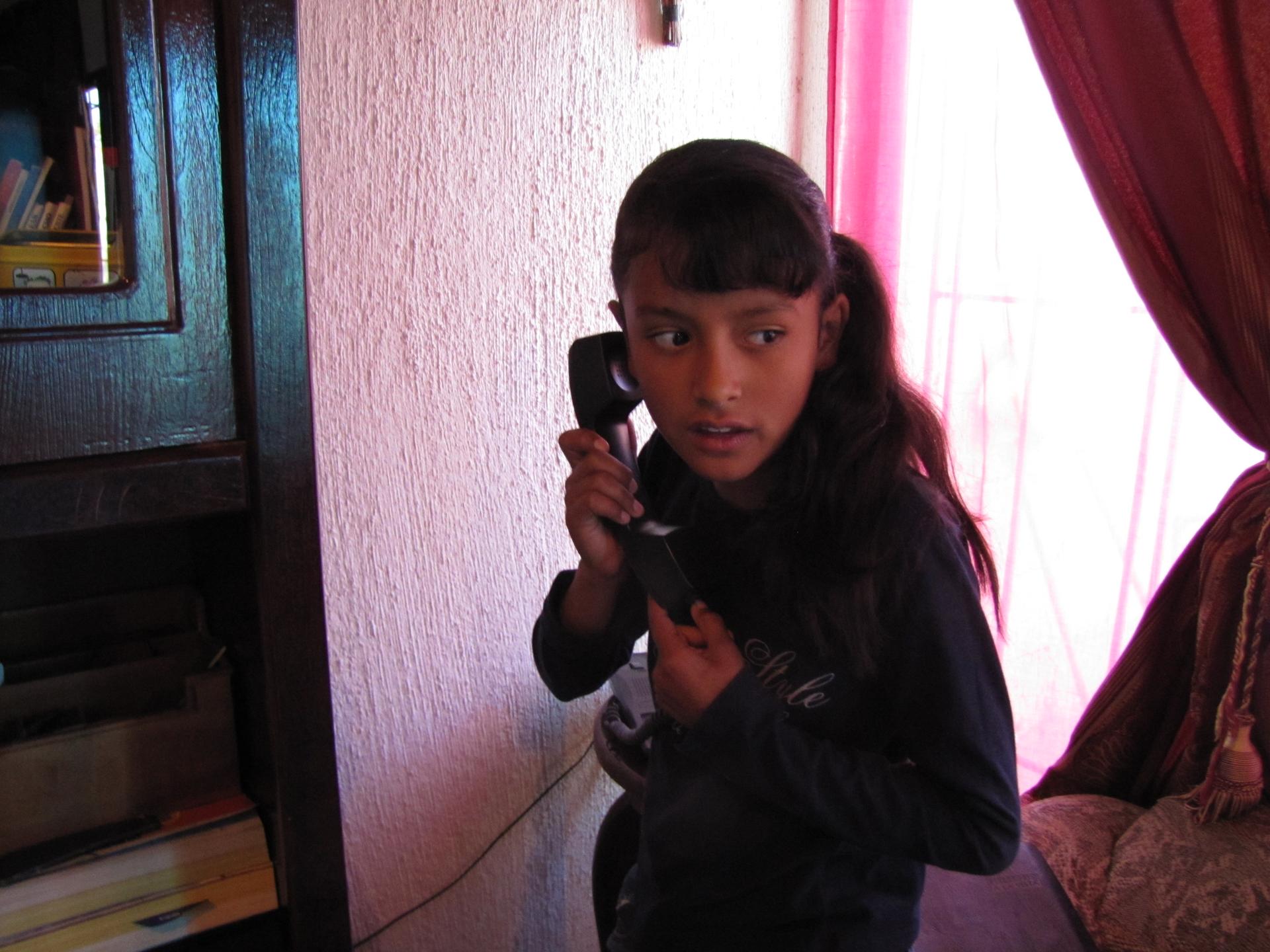Mexican families separated by border look to immigration reform to reunite them
Jimena Cervera, 10, in central Mexico, talks to a relative who migrated to Arizona years ago. (Photo by Jude Joffe-Block.)
Editor's note: This story comes from the public radio collaboration, Fronteras Desk.
Many Mexican families are tuned into news from Washington and whether Congress will change immigration laws.
For years, families on both sides of the border have lived apart, with Mexicans in the U.S. without papers afraid of visiting home and then being unable to cross back. But new laws could change this.
It’s a typical Sunday in the town of Tepeapulco, in Mexico’s central highlands. Families gather, cook and catch up.
And that’s the scene at Santiago Domínguez’s home. At 82 years old, he’s the family patriarch. He’s wearing pressed slacks, his dark hair smoothed back. By lunchtime, he’s surrounded by relatives.
But one person’s always missing: Rosa, Domínguez’s daughter. In the living room, there’s a picture of her as a young woman.
“I thought she’d only be gone three or four years — and then come back,” Domínguez said in Spanish.
But it’s been 18 years since Rosa left for Arizona with her two young sons. They went illegally to join the boys’ father. She’s now 43 and has never returned to Mexico. Without papers, it’s just too risky.
“It got to the point that I told her, ‘You know, I’m not sure if we’ll see each other again,’” Domínguez said.
But now they might.
A proposed Senate bill would allow millions of immigrants who entered the U.S. illegally to apply for provisional status and the chance to work legally and travel internationally.
“There’s hope like never before,” Domínguez said.
And it’s a feeling felt throughout Mexico.
A few towns over, Catalina Cervera knocks on a neighbor’s gate to visit the house next door — the one her younger sister, Sandra, abandoned.
Cervera’s sister left Mexico with her young children about 10 years ago. They crossed into Arizona illegally, picked produce, and now live near Phoenix.
“They’ve taken the door, the windows,” Cervera said in Spanish as she stood in front of her sister’s house.
Since her sister’s been gone, thieves have stripped her house clean, even the roof. It’s a cinder block skeleton.
Cervera said she and her sister feel impotencia, powerlessness — they want to see each other, but can’t.
Her sister couldn’t visit when their mother was dying. And a few years ago, Cervera couldn’t get a tourist visa to see her sister in Arizona.
Cervera said she lacked what’s needed for a U.S. visa: a bank account, a business or a credit card. But now she can envision her sister — and her sister’s kids — visiting Mexico again.
“They are motivated with the dream that this immigration reform is going to happen,” Cervera said.
But as Congress debates the legislation, the wait continues.
Back in Tepeapulco, Domínguez’s tradition is to sing to his daughter a famous ballad over the phone. It’s called “Sin Ti” or Without You.
“What else matters if being far from you makes me cry,” he sang.
More than 1,000 miles away, in Arizona, his daughter Rosa has become an activist for immigration reform. She asks to only use her first name because of her unauthorized status.
“I want this to happen now, because our parents’ lives won’t wait,” Rosa said in Spanish.
And if reform does happen and she can travel to Mexico freely one day?
She said she’ll surprise her dad with a mariachi band. And they’ll play that ballad he’s sung to her over the phone for the past 18 years.
Every day, reporters and producers at The World are hard at work bringing you human-centered news from across the globe. But we can’t do it without you. We need your support to ensure we can continue this work for another year.
Make a gift today, and you’ll help us unlock a matching gift of $67,000!
